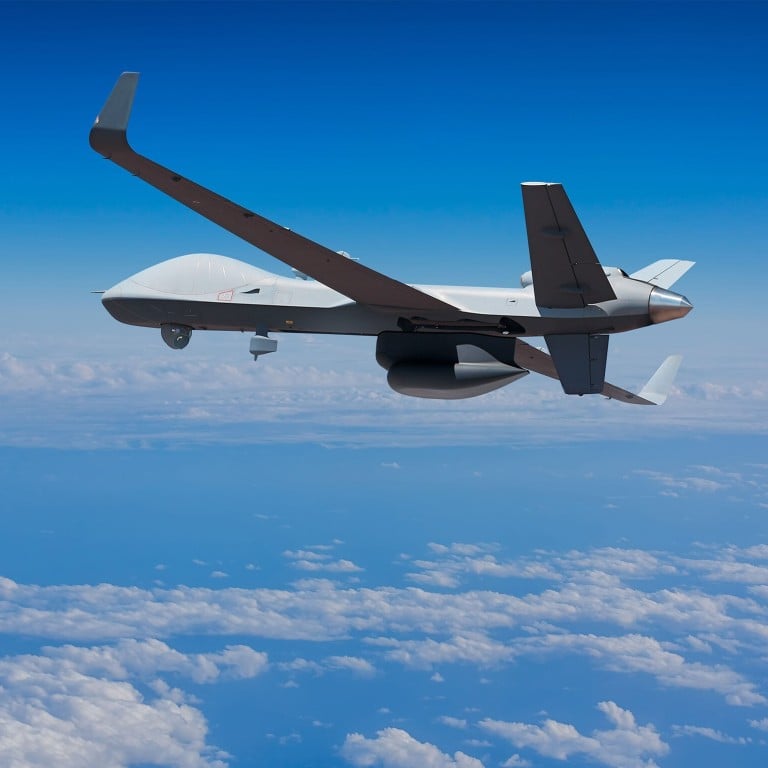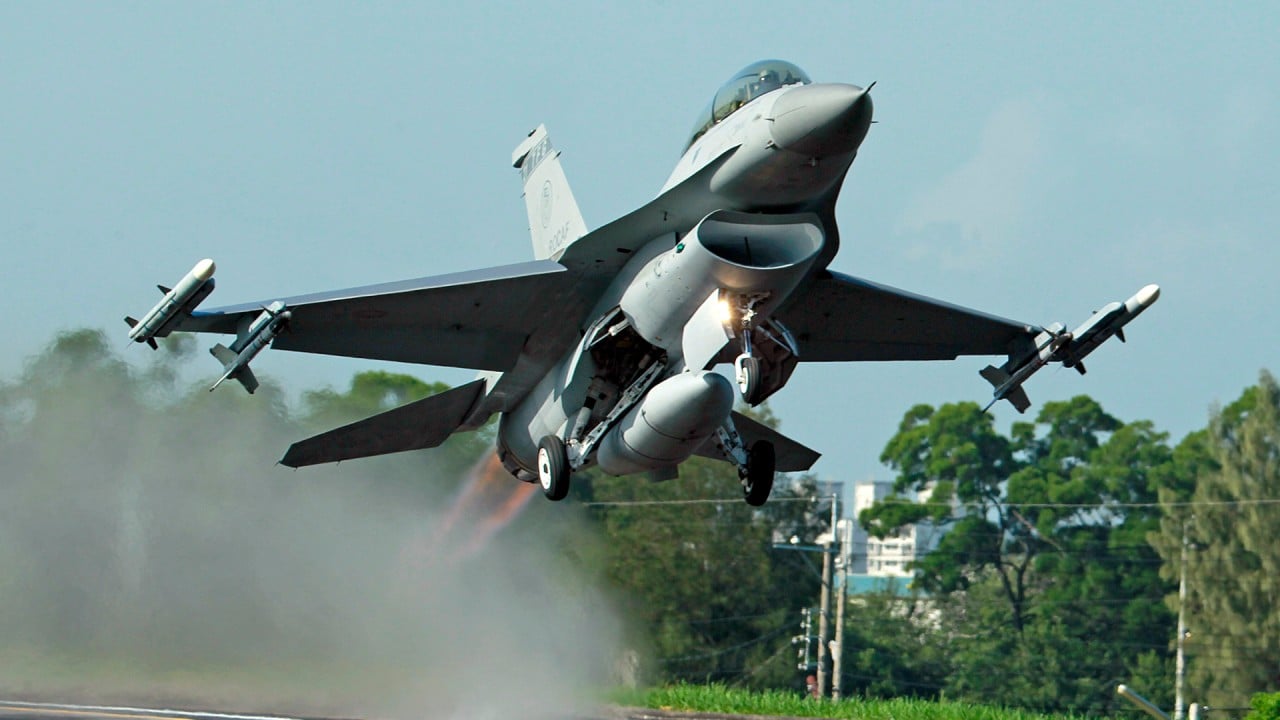
US approves drone sale to Taiwan while all eyes on White House race
- US$600 million package marks first time sophisticated armed drone technology made available to Taipei
- Third arms deal in two weeks welcomed by Taiwanese presidential office
The US state department announced on Tuesday – while the US presidential election was under way – it had notified Congress of the possible sale of four weapons-ready MQ-9B SeaGuardian drones and other equipment worth US$600 million.
It was the third arms deal with Taipei in two weeks and will increase the island’s maritime surveillance capabilities against Beijing while boosting its defence relations with Washington.
The Taiwanese presidential office welcomed the announcement and said it reflected Washington’s firm commitment to the island’s self-defence and was in line with the US Taiwan Relations Act and the “Six Assurances” which underpin their security partnership.
“The equipment meets the defence and strategic needs of our forces and can effectively upgrade the surveillance capability of our forces at all times, thereby strengthening our asymmetric warfare and our defensive ability,” said presidential spokesman Xavier Chang.

02:28
Washington’s US$1.8 billion arms sale to Taiwan is first weapons deal of its kind in over 40 years
The Taiwanese foreign and defence ministries also hailed the announcement as yet another concrete US action to help strengthen the island’s defensive capability. The defence ministry said it would prepare a budget for the latest deal to be sent to the legislature for review and approval.
The latest package is made up of four weapons-ready MQ-9B remotely piloted aircraft, two fixed ground control stations, two mobile ground control stations, and 14 embedded global positioning system/inertial navigation systems with 12 installed and two spare selective availability anti-spoofing modules.
Also included are MX-20 multispectral targeting systems and spares, SeaVue maritime multi-role patrol radars, SAGE 750 electronic support measures systems, C-band line of sight ground data terminals, Ku-Band SATCOM GA-ASI transportable earth stations and other equipment.
US-Taiwan Business Council president Rupert Hammond-Chambers said the latest deal would facilitate Taiwan’s continued expansion of its existing intelligence, surveillance, and reconnaissance infrastructure.
“Adding the SeaGuardian platform will provide Taiwan with substantial new maritime surveillance capabilities. This is a crucial mission for the Taiwan navy, particularly given the PLA’s aggressive incursions in regional waters and in the Taiwan Strait. We can expect Taiwan to further expand this capability in the coming years,” he said.
How Beijing’s ‘red lines’ over Taiwan could lead to war with US
Hammond-Chambers said Taiwan was hitting its stride in its efforts to modernise and develop its military capacity. SeaGuardian was a top-rated platform, and the sale reflected an adjustment by the Trump administration to make available new capabilities – such as drones – to US friends and allies to complicate planning by the People’s Liberation Army, he said.
“American policy towards Taiwan should indeed include consideration of all platforms that enhance Taiwan’s defensive posture while also improving Northeast Asian security,” he said.
China’s foreign ministry on Wednesday accused the US of violating the one-China principle and the three communiques that underline relations between the two countries.
“This not only seriously damages the sovereignty and national interests of China, but also sends a wrong signal for Taiwan’s separatists, which the Chinese side resolutely opposes,” ministry spokesman Wang Wenbin said, adding China would make a “proper response”.
Why Taiwan may be a key factor in China’s military modernisation plan
Zhu Fenglian, spokeswoman for China’s Taiwan Affairs Office, said the arms deal endangered peace across the Taiwan Strait.
She also said any attempt by the island’s ruling Democratic Progressive Party to seek independence from the mainland would bring “only disaster” to the Taiwanese people.
Since October 21, the US has approved two batches of arms deals for Taiwan, including 11 High Mobility Artillery Rocket Systems, M142 launchers and related equipment worth US$436.1 million, as well as 100 Harpoon coastal defence systems with 400 RGM-84L-4 Harpoon Block II surface launched missiles and other equipment worth US$2.37 billion.
The latest deal is certain to provoke Beijing, which has time and again warned Washington against providing arms for Taiwan, which it regards as a wayward province to be returned to the mainland fold, by force if necessary.

